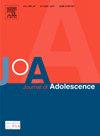Positive youth development of Tayal and Han adolescents in Taiwan: A cultural and structural perspective
Abstract
Introduction
Using the Five Cs model of positive youth development (PYD), this study aimed to provide a socio-structural and cultural understanding of PYD in Indigenous Tayal youth by examining the specificity in the development of Five Cs (Competence, Confidence, Character, Caring, and Connection) between Tayal and Han youth in Taiwan.
Methods
A sample of 847 Tayal and Han adolescents (43.8% Tayal, 47.9% girls, Mage = 14.83, SD = 0.50) were drawn from a larger study (September 2014 to August 2017). Adolescent participants completed questionnaires asking about their Five Cs, contribution behavior, and depressive symptomatology.
Results
Measurement invariance was conducted to explore specificity between Tayal and Han youth's Five Cs performance. A bi-factor Five Cs model was identified and partial metric and partial scalar measurement invariance was established between the two samples. Across both groups an overarching PYD factor, which was associated with increased contribution and lower depressive symptomatology, was identified. Specificity was observed in the Tayal sample, particularly relating to indicators of Competence, Character, Caring, and Connection.
Conclusion
The findings of this study provide a sociocultural-informed lens regarding the specificity of development in Tayal youth. Character, Caring, and Connection appear to contribute significantly more to the overall PYD for Tayal adolescents than their Han peers. Findings relating to Competence suggest that the educational environment may not be aligned with the learning style of Tayal youth. This study has policy and practical implications for Tayal youth, and can further help inform program development in Taiwan and internationally.

 求助内容:
求助内容: 应助结果提醒方式:
应助结果提醒方式:


